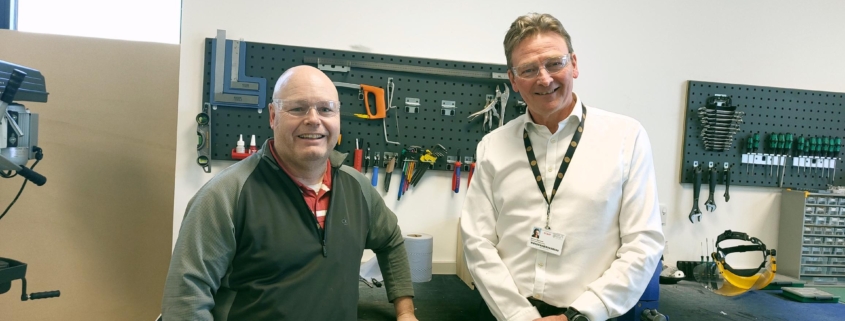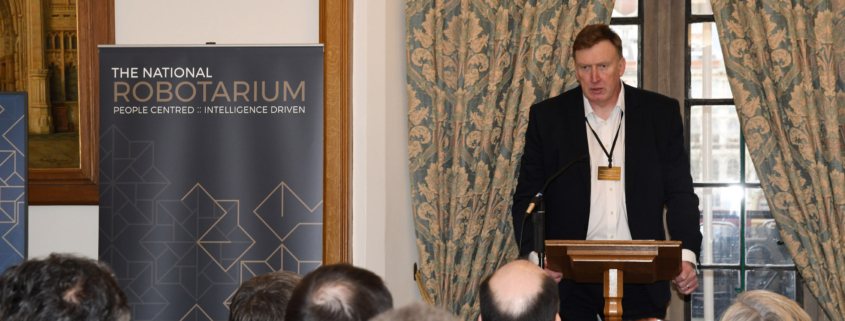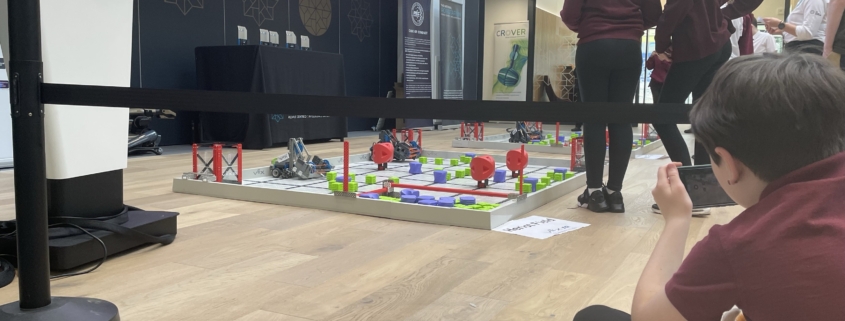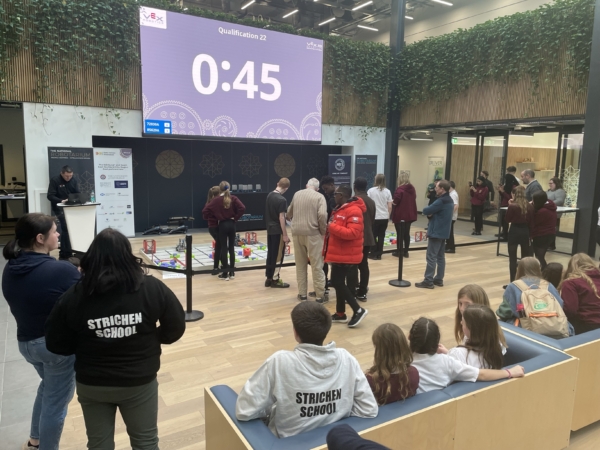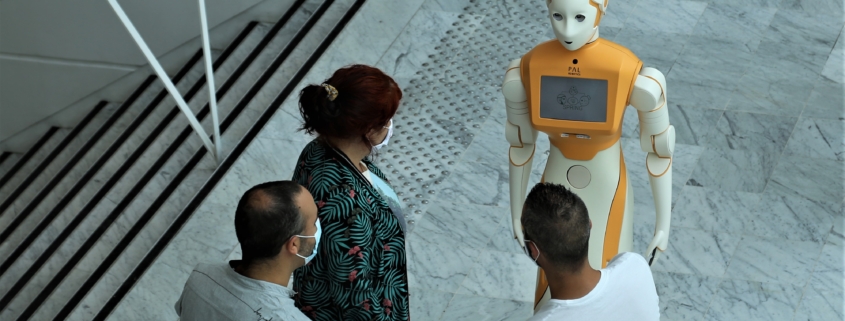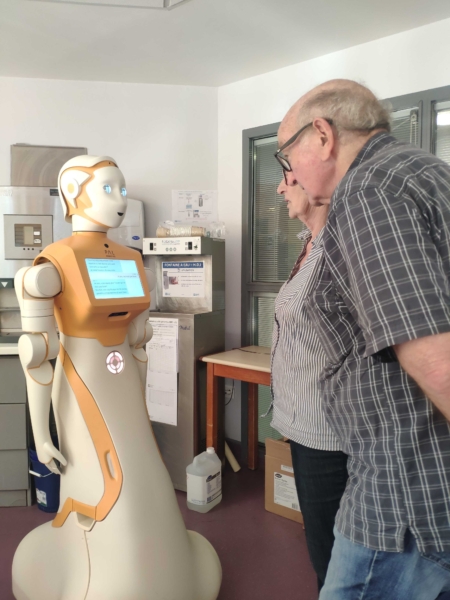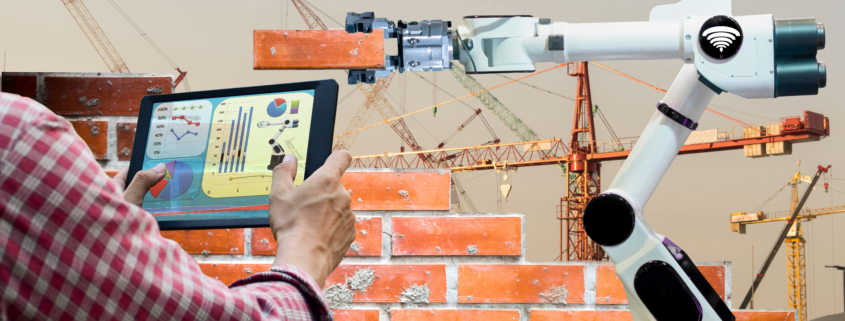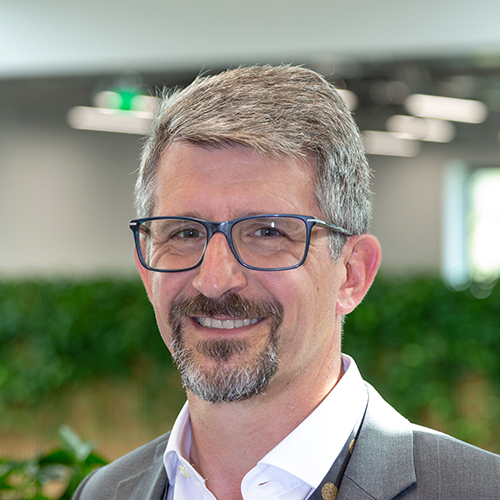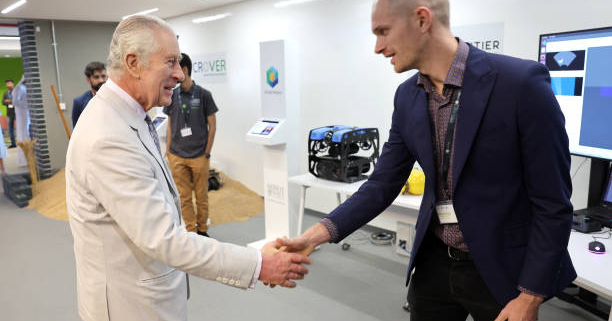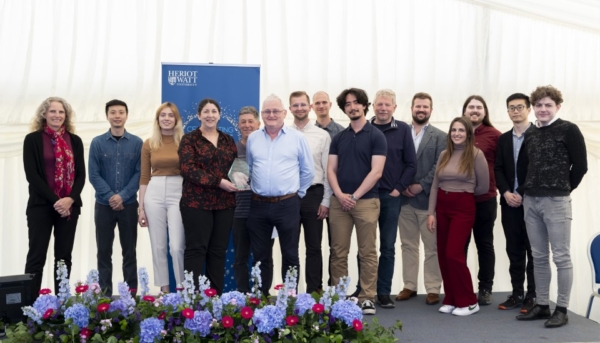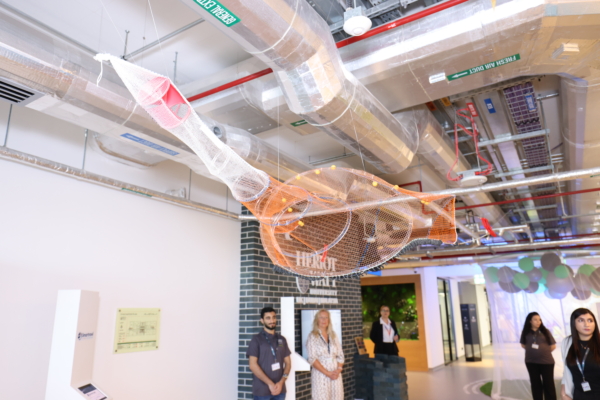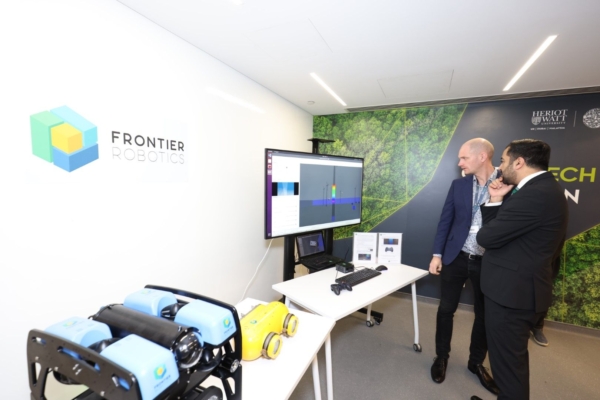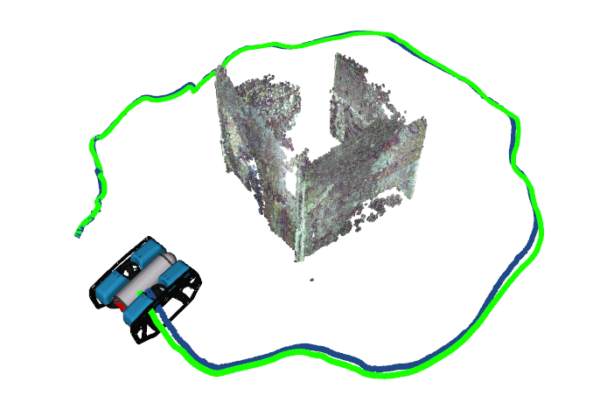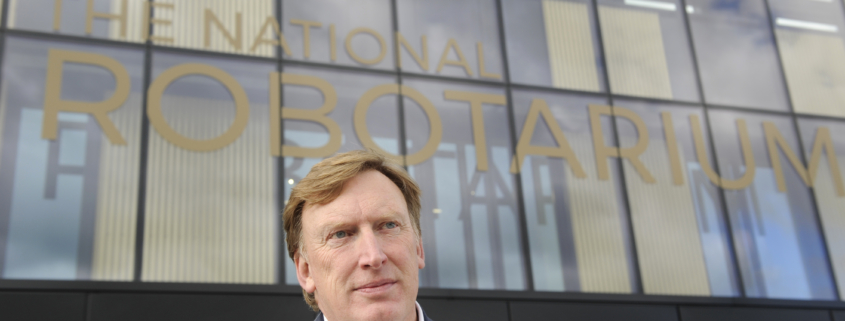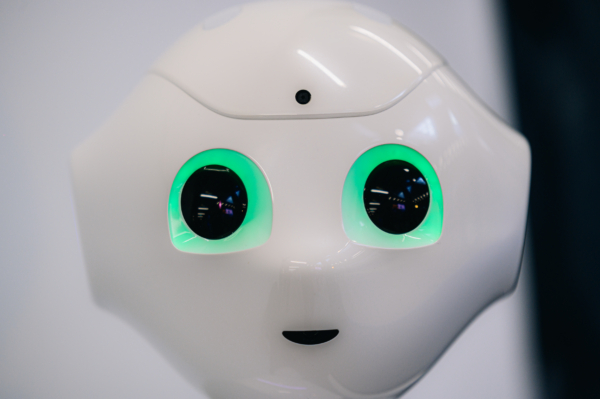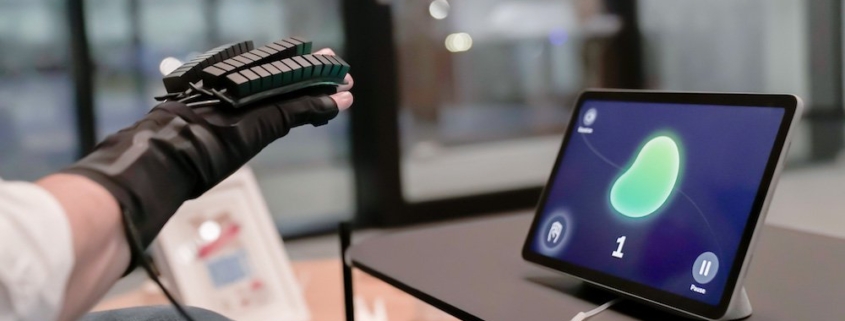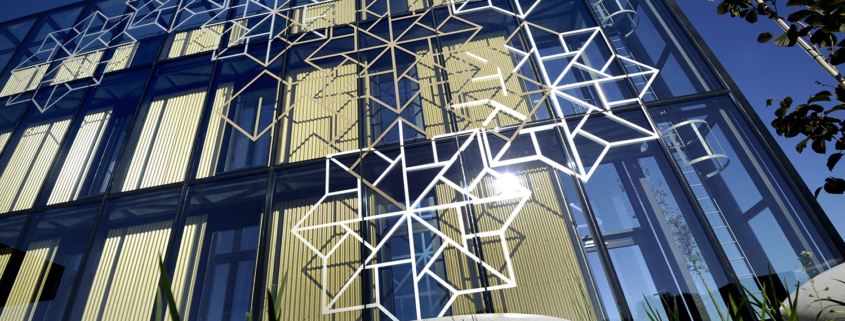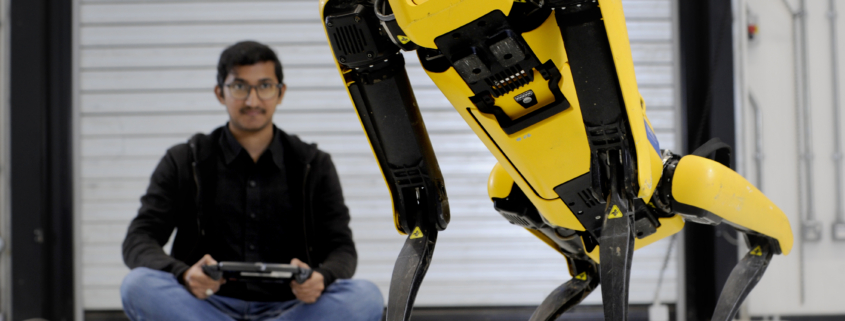The National Robotarium to support robotics technician development across UK
The National Robotarium has been announced as a partner in the UK Robotics and Autonomous Systems Strategic Technical Platform (UKRAS-STEP), a new 3-year project to support and enhance training and development for technical research staff.
With the backing of funding from the Engineering and Physical Sciences Research Council (EPSRC), UKRAS-STEP will strengthen the UK’s Robotics and Autonomous Systems capabilities, improve the long-term career prospects of Research Technical Professionals (RTPs) and create stronger links between academia, industry and government.
Through a consortium of 37 universities within the existing UKRAS network, the project, led by University of Leeds Professor of Robotics, Robert Richardson, will deliver a programme of education across eight themes, designed to support the diverse range of technical expertise that currently supports world-class robotics research.
“Research technicians are the backbone of world-leading research into Robotics and Autonomous Systems, providing a wealth of technical expertise and operational support…”
– Steve Maclaren, Chief Operating Officer at the National Robotarium
Professor Richardson said: “Research Technicians in Robotics and Autonomous Systems play a pivotal role in advancing robotics research across various industry sectors in the UK, spanning from transport and healthcare to manufacturing and unmanned systems.
“Despite their amazing contribution, career growth opportunities are limited and as a result, some areas experience high staff turnover. UKRAS STEPS will establish a dedicated platform to address these challenges by facilitating the development of secondments, training programmes and mentorship schemes.
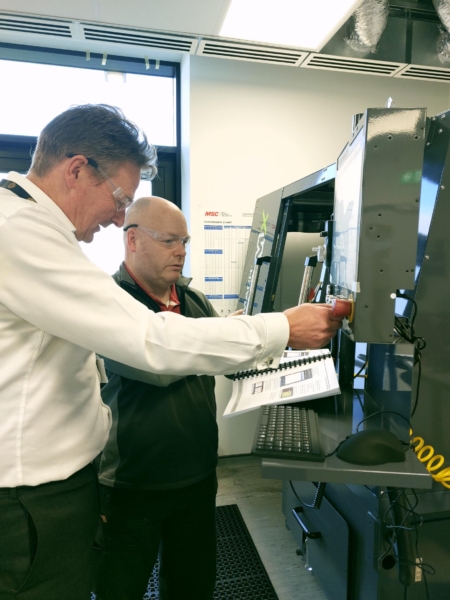
COO Steve Maclaren and Senior Technician Thomas McGravie
The National Robotarium will lead in formation of a number of task groups, each focused on addressing a particular challenge within the technical research sector. Through an open call, HEIs from the UK-RAS network will work together to deliver tasks ranging from small projects and producing training materials to holding national workshops and influencing policy through white papers.
“The UKRAS-STEP initiative will enable me and other technical research colleagues working in robotics across the UK to connect, share knowledge and best practice.”
– Thomas McGravie, Senior Technician at the National Robotarium
Chief Operating Officer at the National Robotarium Steve Maclaren will lead on the Task Groups work package. He said: “We are thrilled to be a part of the UKRAS-STEP programme and work with the RAS community to help advance training and opportunities for technical research staff.
“Research technicians are the backbone of world-leading research into Robotics and Autonomous Systems, providing a wealth of technical expertise and operational support that enable scientists to conduct research safely and effectively in an optimum research environment.
“Without them, we would be unable to maintain and manage essential research components such as robotic equipment, lab space, computer systems and software, so it is vital that our community of technical research professionals feel valued with opportunities to develop and grow.”
Thomas McGravie has been Senior Technician for Heriot-Watt University at the National Robotarium since it opened in September 2022. He said: “The UKRAS-STEP initiative will enable me and other technical research colleagues working in robotics across the UK to connect, share knowledge and best practice, and build upon our individual and collective skills.
“I’m excited to see the proposal come to life and look forward working more closely with the wider RTP community.”
About UKRAS-STEP
The UK Robotics and Autonomous Systems Strategic Technical Platform (UKRAS-STEP), led by University of Leeds, is one of 11 new projects benefitting from a share of a new £16 million investment by EPSRC and UKRI Digital Research Infrastructure (DRI) to improve the long-term career prospects of Research Technical Professionals (RTPs).
UKRAS-STEP will create a community-driven strategic technology platform that empowers individuals to develop, while building an inclusive community to enhance the UK research environment and support the delivery of world-class research in the UK.
Its three main objectives are:
i) To enhance individual technical knowledge, skills and career development amongst research technicians;
ii) Provide opportunities for networking, knowledge-sharing, community-driven activities, celebrating and promotion success, international collaboration and national advocacy;
iii) Deliver a flagship programme that is inclusive, ethical and sustainable.

